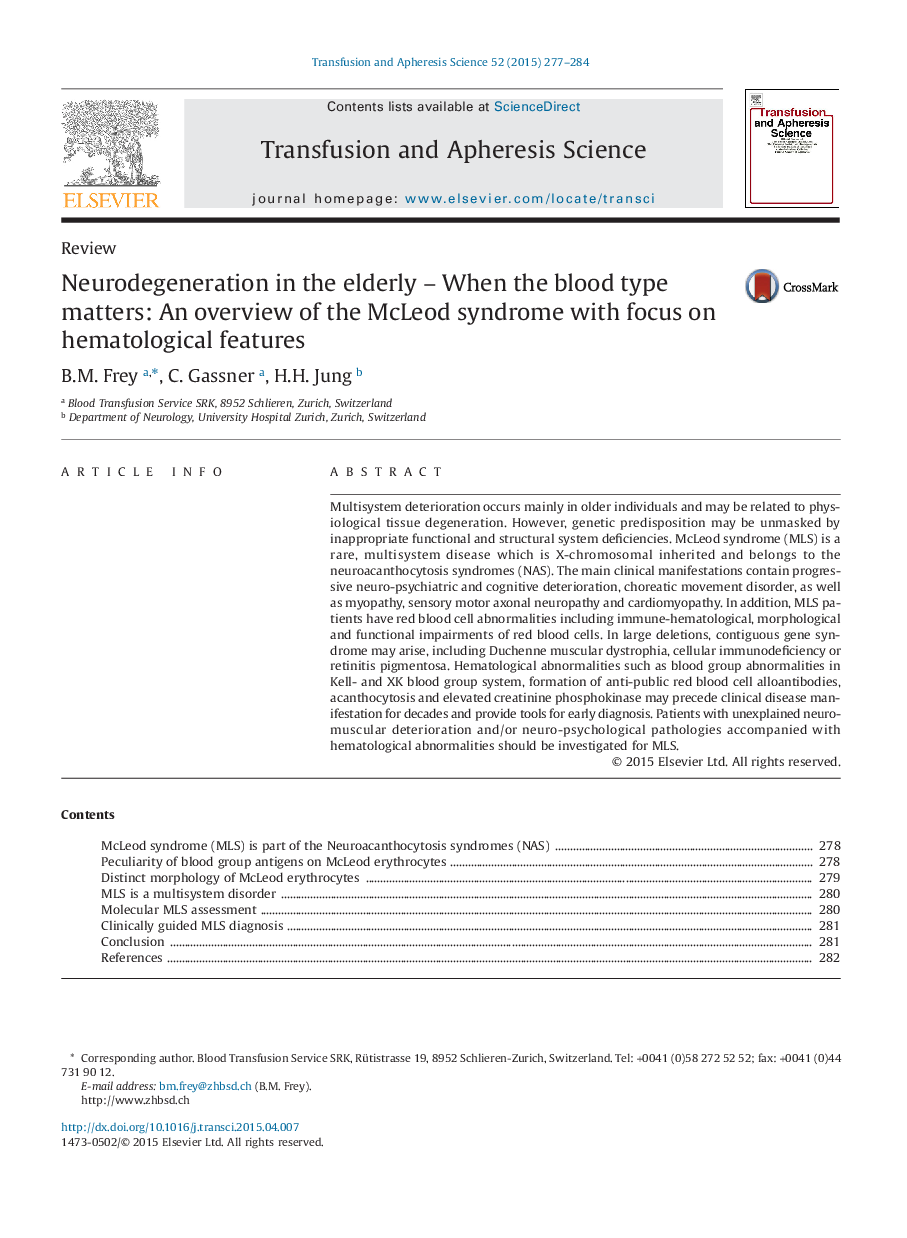| Article ID | Journal | Published Year | Pages | File Type |
|---|---|---|---|---|
| 3334888 | Transfusion and Apheresis Science | 2015 | 8 Pages |
Multisystem deterioration occurs mainly in older individuals and may be related to physiological tissue degeneration. However, genetic predisposition may be unmasked by inappropriate functional and structural system deficiencies. McLeod syndrome (MLS) is a rare, multisystem disease which is X-chromosomal inherited and belongs to the neuroacanthocytosis syndromes (NAS). The main clinical manifestations contain progressive neuro-psychiatric and cognitive deterioration, choreatic movement disorder, as well as myopathy, sensory motor axonal neuropathy and cardiomyopathy. In addition, MLS patients have red blood cell abnormalities including immune-hematological, morphological and functional impairments of red blood cells. In large deletions, contiguous gene syndrome may arise, including Duchenne muscular dystrophia, cellular immunodeficiency or retinitis pigmentosa. Hematological abnormalities such as blood group abnormalities in Kell- and XK blood group system, formation of anti-public red blood cell alloantibodies, acanthocytosis and elevated creatinine phosphokinase may precede clinical disease manifestation for decades and provide tools for early diagnosis. Patients with unexplained neuro-muscular deterioration and/or neuro-psychological pathologies accompanied with hematological abnormalities should be investigated for MLS.
